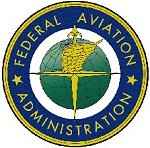TSA Takes Over Issuance/Maintenance of Certificates, in New
NPRM
 In the Federal Register Friday, you'll be able to
see that you can be knocked out of the air -- just like that -- if
the TSA alleges that you pose a 'security risk.' Pilots will be
immediately grounded; mechanics, DERs -- everybody who holds a
certificate of any kind from the FAA -- can be immediately out of a
job.
In the Federal Register Friday, you'll be able to
see that you can be knocked out of the air -- just like that -- if
the TSA alleges that you pose a 'security risk.' Pilots will be
immediately grounded; mechanics, DERs -- everybody who holds a
certificate of any kind from the FAA -- can be immediately out of a
job.

The TSA will notify you that you are considered a 'security
risk.' It will notify the FAA; and the FAA will immediately suspend
your ticket(s), pending your 'appeal.'
You will then have to convince the TSA (which already declared
you a 'security risk') that you are not a 'security risk,' without
your knowing why they think you are such a risk. Then, when the TSA
issues its final ruling, the FAA will revoke your papers.
We wanted some confirmation on this, and called the TSA. Chris
Rhatigan, in the press office there, said, "You may have to talk to
the FAA on that."
We read her a part of the summary, which says, "This final rule
expressly makes a person ineligible to hold FAA-issued airman
certificates if the Transportation Security Administration notifies
the FAA in writing that the person poses a security threat."
 As we
continued reading, and noted that the TSA was calling the shots,
she said, "Hold on a second." She returned, and said, "This
[determination that you're a security threat] comes from an
intelligence database." OK -- so, how do we know how big a threat,
or how it's determined that one even is such a threat? "We don't
tell people how to get on to that database," she said. In other
words, if you're denied your certificate, you won't be able to find
out why -- just that someone, somewhere, thinks you're a 'security
risk.'
As we
continued reading, and noted that the TSA was calling the shots,
she said, "Hold on a second." She returned, and said, "This
[determination that you're a security threat] comes from an
intelligence database." OK -- so, how do we know how big a threat,
or how it's determined that one even is such a threat? "We don't
tell people how to get on to that database," she said. In other
words, if you're denied your certificate, you won't be able to find
out why -- just that someone, somewhere, thinks you're a 'security
risk.'
Ms Rhatigan informed us that everything would be spelled out in
the NPRM, and that we'd have to wait until Friday, to see what was
getting published in the Federal Register. Well, folks the
law goes into effect Friday. No NPRM. No discussion.
Decree. Tough.
Well, we have an advance copy of that law. The document's
"explanation" is merely procedural; there is no underlying
reasoning explained; and the airman is simply screwed, without
recourse.
First, you're grounded -- no questions asked. Then you can
start the 'appeal' process.
Here's how it works: the TSA will notify the purported 'security
risk' that he is considered a 'security risk,' and the FAA will
immediately ground the flier/mechanic/etc. The accused can then
tell the TSA that he's not a 'security risk;' but, without
knowing on what basis the determination was initially made,
the accused is defending himself, blindfolded. The TSA is then the
final arbiter of determining whether the accused (whom they have
already declared a 'security risk,' while possibly taking away his
means of making a living and likely ruining his reputation)
actually is a 'security risk.'
ALPA's Initial Reaction
 John
Mazor, spokesman for ALPA, the largest pilots' union, told ANN that
his organization is taking a close look at the NPRM. It was too
early to say anything definitive (we had told the union of this
NPRM just minutes earlier); but he was willing to say, "As
described, it has some disturbing implications." He assured us,
"ALPA's security people are interested in studying the NPRM."
John
Mazor, spokesman for ALPA, the largest pilots' union, told ANN that
his organization is taking a close look at the NPRM. It was too
early to say anything definitive (we had told the union of this
NPRM just minutes earlier); but he was willing to say, "As
described, it has some disturbing implications." He assured us,
"ALPA's security people are interested in studying the NPRM."
[Note: we reported earlier that this is to be an NPRM,
with a comment period. Nope. It's just the way it is, effective
Friday --ed.]
 Aero-TV: DeltaHawks Diesel Power Steps Into the Spotlight
Aero-TV: DeltaHawks Diesel Power Steps Into the Spotlight NTSB Prelim: Mooney Aircraft Corp. M20K
NTSB Prelim: Mooney Aircraft Corp. M20K ANN FAQ: Turn On Post Notifications
ANN FAQ: Turn On Post Notifications ANN's Daily Aero-Linx (12.20.25)
ANN's Daily Aero-Linx (12.20.25) Aero-News: Quote of the Day (12.20.25)
Aero-News: Quote of the Day (12.20.25)






